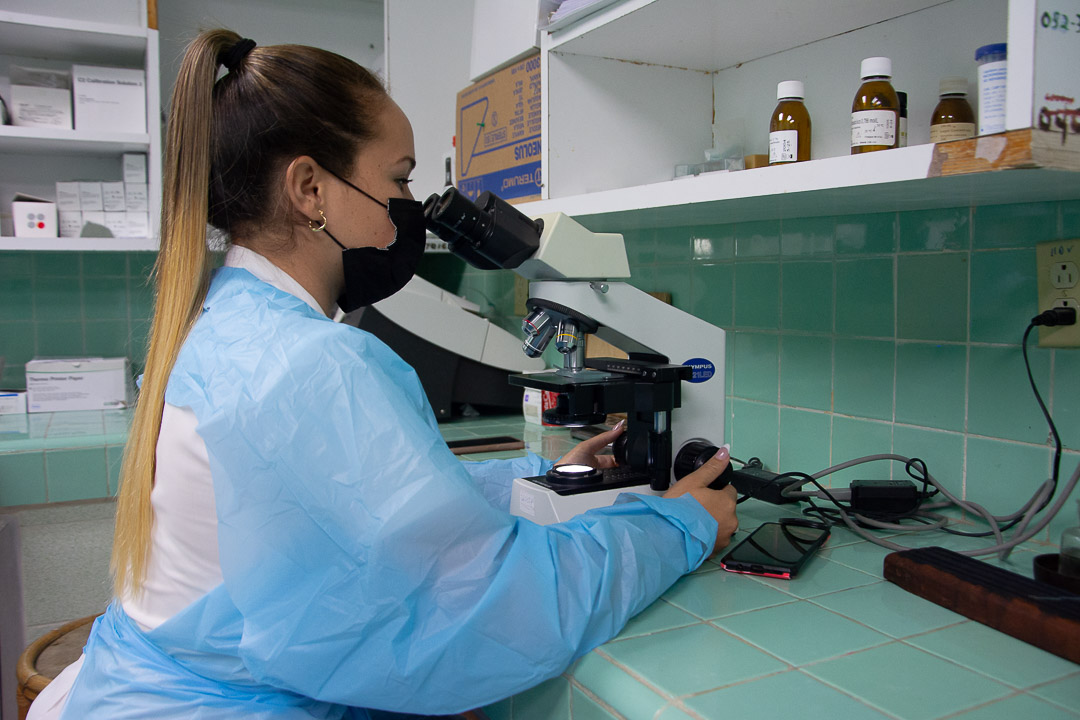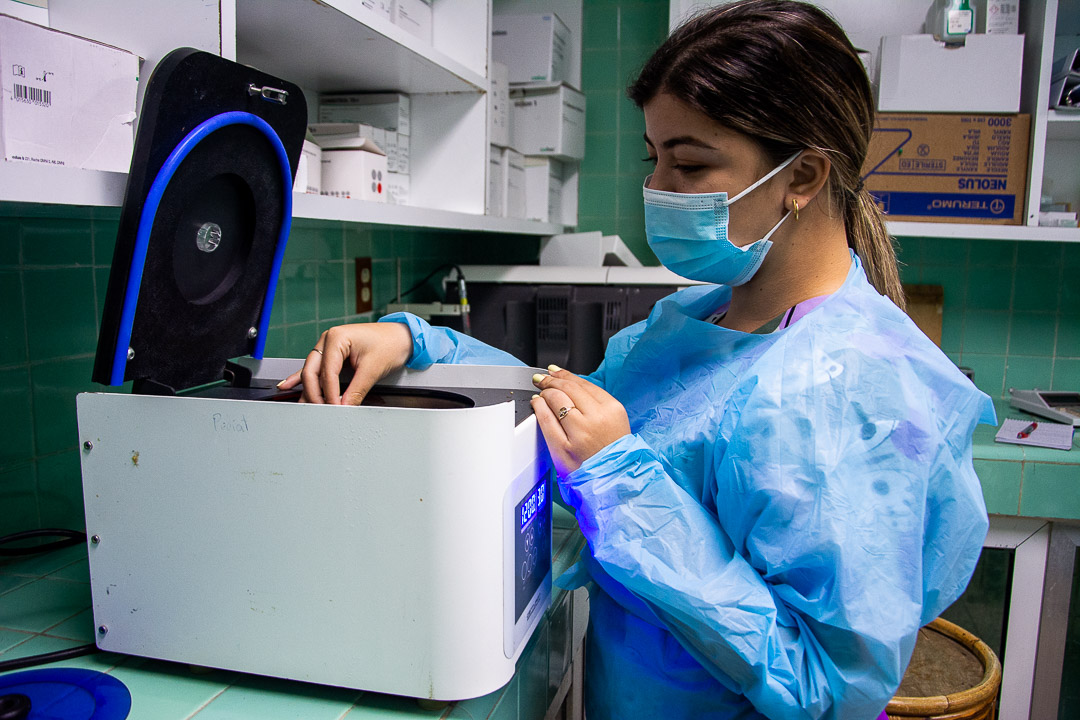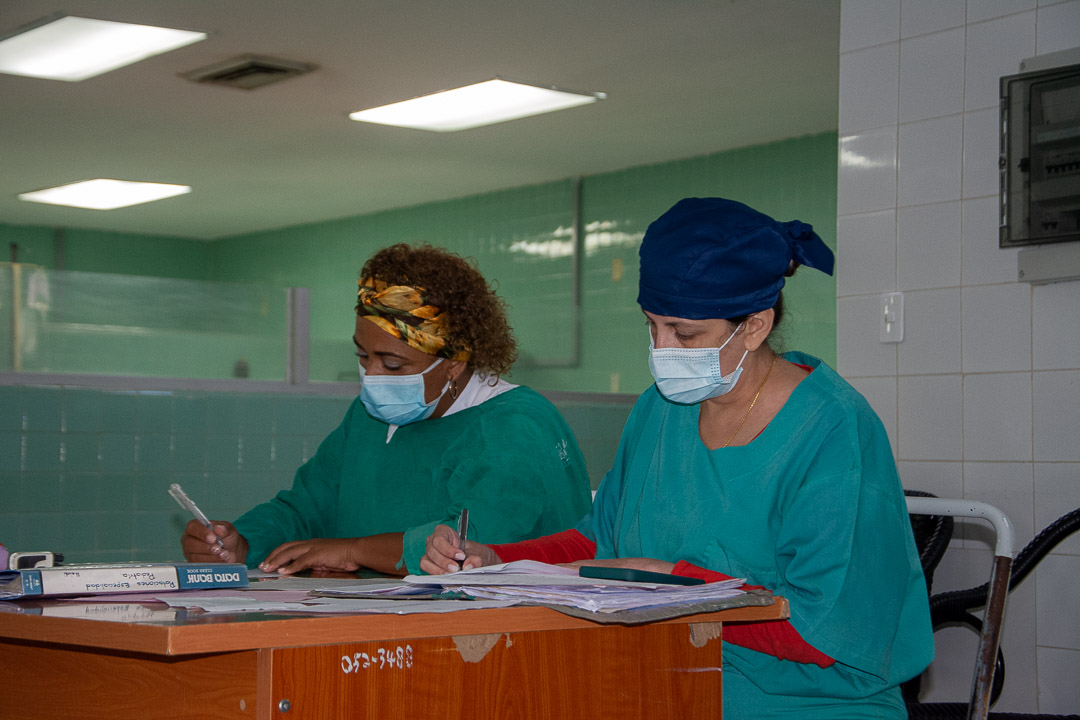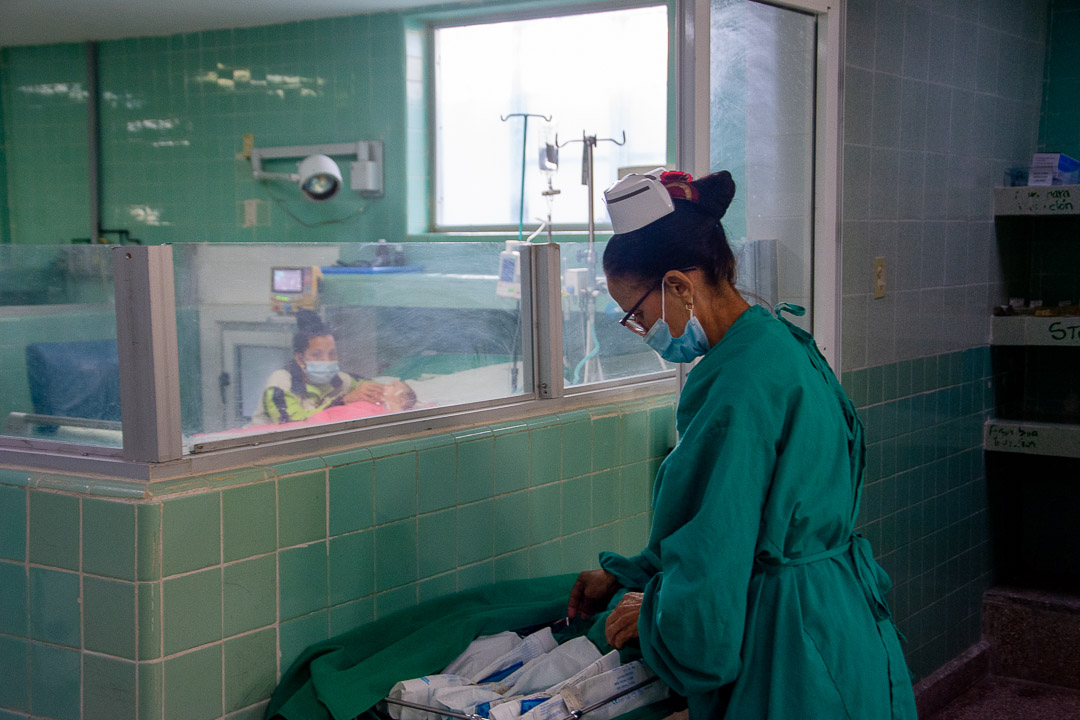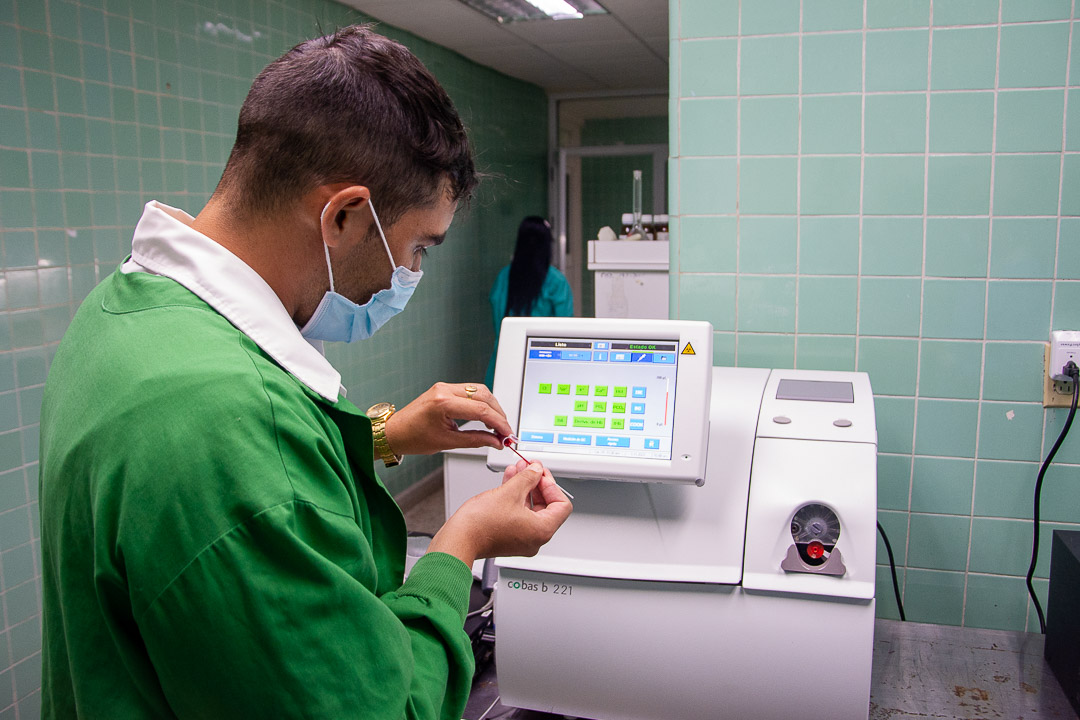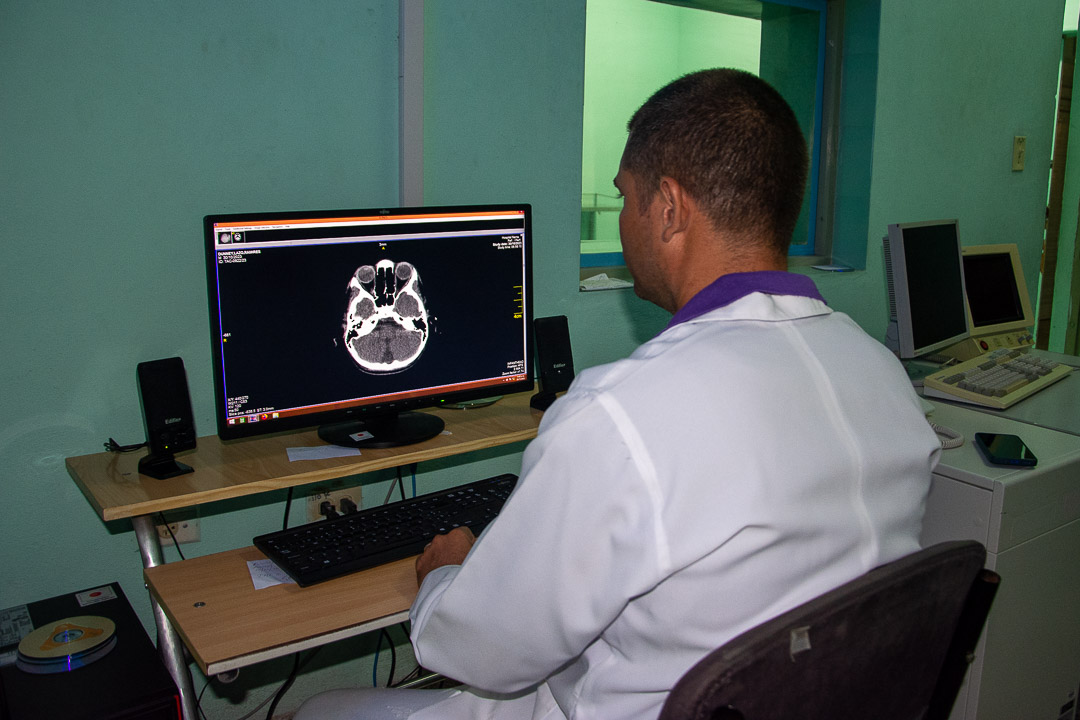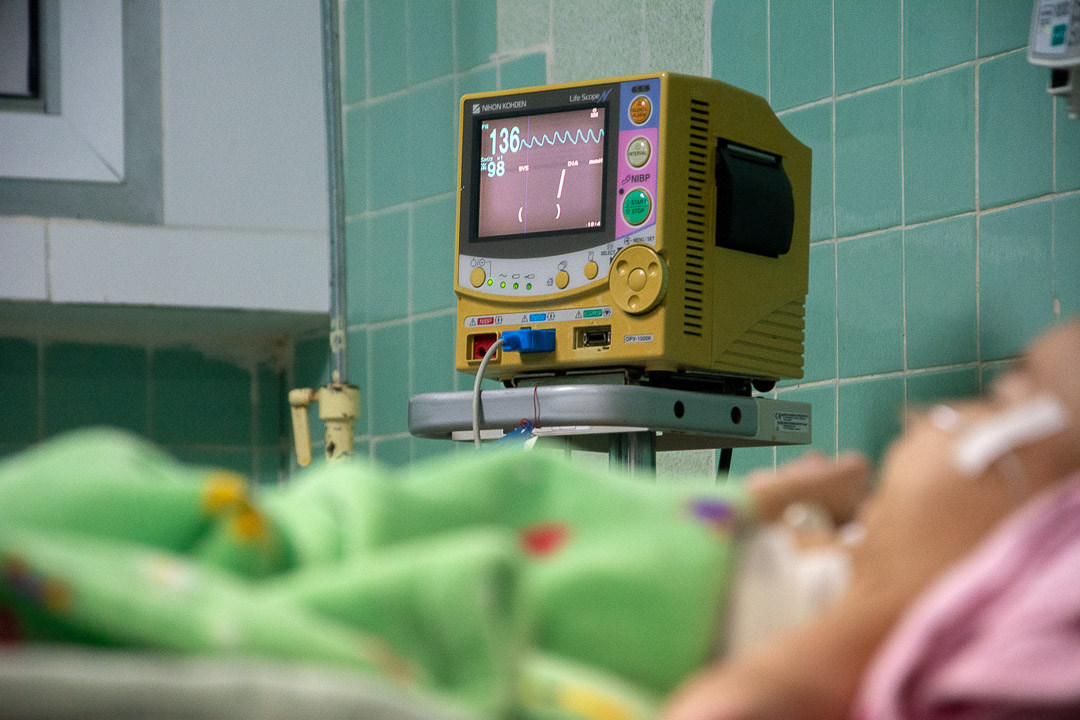CAMAGÜEY.- If beds could talk, hospital stories would have more details. The weight of pain and the response of the body in struggle to recover the rhythm that life leads falls on them. The most critical and serious stories are written today in nine of the 13 beds of the intensive care service of the pediatric hospital of Camagüey.
A few days ago, a patient turned two years old on the bed that has supported him for more than one year. He has been ventilated for that time due to his dystrophy.
In another cubicle, Esmeralda's grandmother takes care of her seven-month-old granddaughter. She receives oxygen therapy and complete treatment to overcome the pneumonia.
From Minas, a mother does not leave the side of her teenage son. He has fractured his femur due to an accident. They assured him that they will not delay the operation due to lack of human or technical resources.
Even the Pediatric, due to out-of-hospital management, already has another C-Arm, high-tech equipment for better image quality in real time, shorter exposure time to radiation and greater precision during surgery.
A four-year-old boy also arrived by accident. A horse kicked him in the stomach. The morning of our appearance he was with his luminous eyes on his mother's legs. He was evolving well.
We could continue calling the roll of the beds, but that route sheet is incomplete without the main crew members of a ship that always navigates the seas of the limit, the reserved forecasts.
We refer to the team of doctors, nurses, laboratory technicians, technicians focused on risk areas. They aspire and do even what seems impossible to achieve happy endings, that is, the return of their patients home healthy.
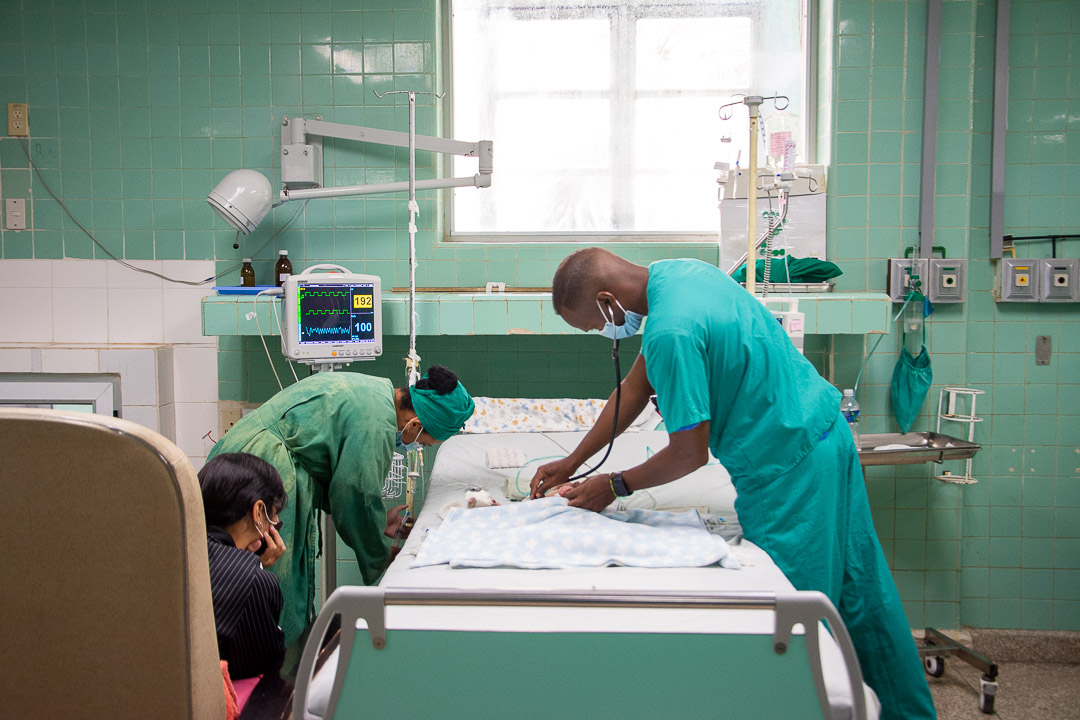
QUESTIONS AND ANSWERS
Due to the epidemiological situation in the province of Camagüey, in case you do not know or are not cautious (and the World Health Organization warned about this months ago), there is an increase in respiratory infections caused mainly by two viruses: Influenza and Syncytial. Is the Eduardo Agramonte Piña Pediatric Hospital prepared to face these complications and other extreme reports? What staff does it have? Under what conditions does it work? Adelante Digital reaches the most feared service
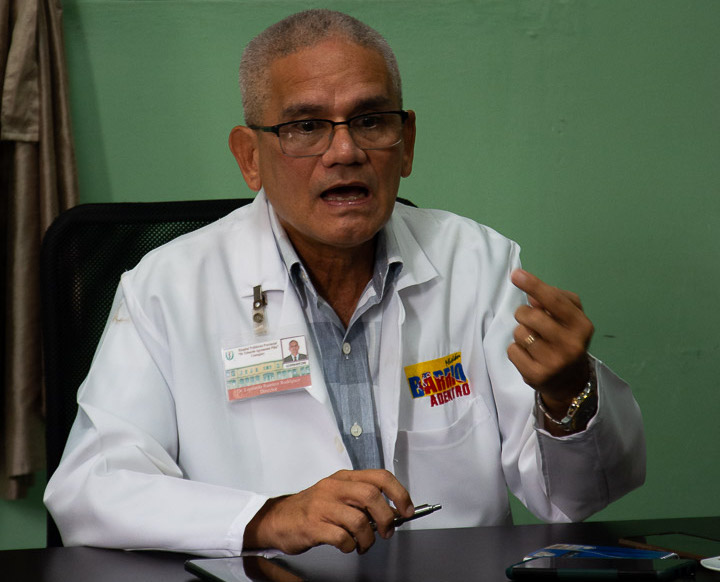
Leonardo Ramírez Rodríguez, director of the pediatric hospital, assured the press that the current never goes out there, and that a few weeks ago he reopened the second guard unit with a reinforcement of 12 comprehensive general practitioners. He related objective difficulties such as the staff to be covered, mainly nursing and cleaning assistants, but that does not prevent a great truth:
“Every day a life is saved in the institution.”
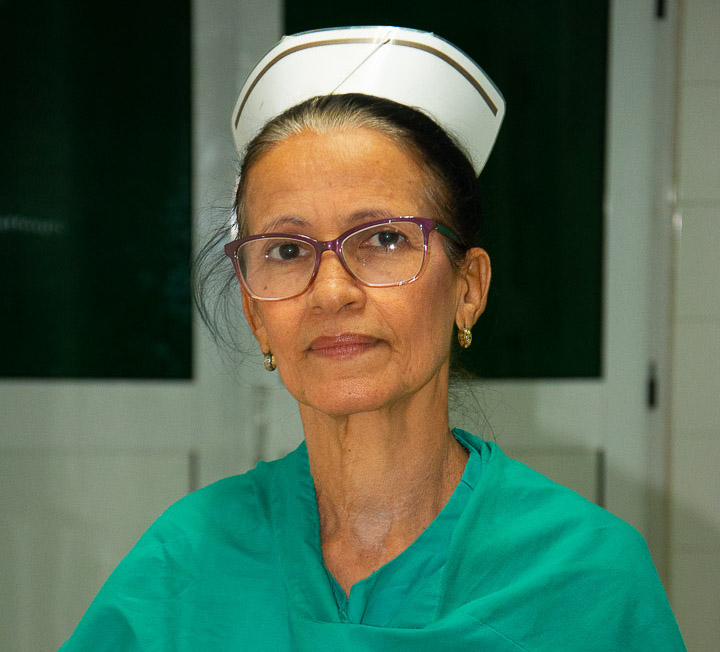
NURSE LOURDES
Lourdes Rodríguez Marrero gets a face at home because she doesn't have a fixed schedule. She has been a nurse for 44 years and at this point there is no one to change her. As head of the Intensive Care ward, the greatest demand for human resources falls on her shoulders:
“We see ourselves a little under pressure. We have nine patients and five nurses including me. Let me clarify, the ventilated patient has one for himself and also every critical child reported as unstable. Work makes us great because we put all our effort there.”
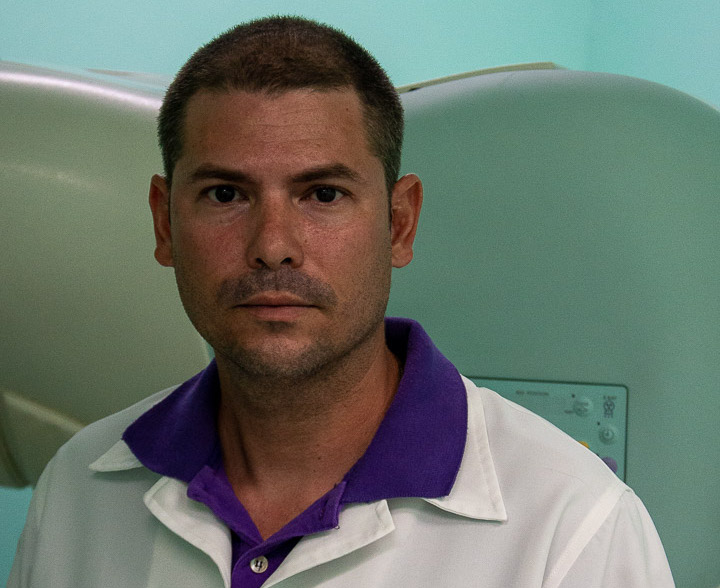
THE YOUNG IMAGENOLOGIST
The specialties converge in the use of imaging, explains specialist Andrei Rodríguez Navarro. He is the youngest in the department and he would like to always have the professors there, for support when in doubt and because sometimes his case experiences do not appear in the books.
Pictured in front of the old CT scanner, he celebrates that another center in the territory provided its C-Arm to the pediatric hospital:
“We depend on technology to be able to define patients more clearly. It is difficult to renew the equipment because of the market that can provide it to us. We do everything possible so that no patient is left without a diagnosis due to lack of equipment or a doctor.”
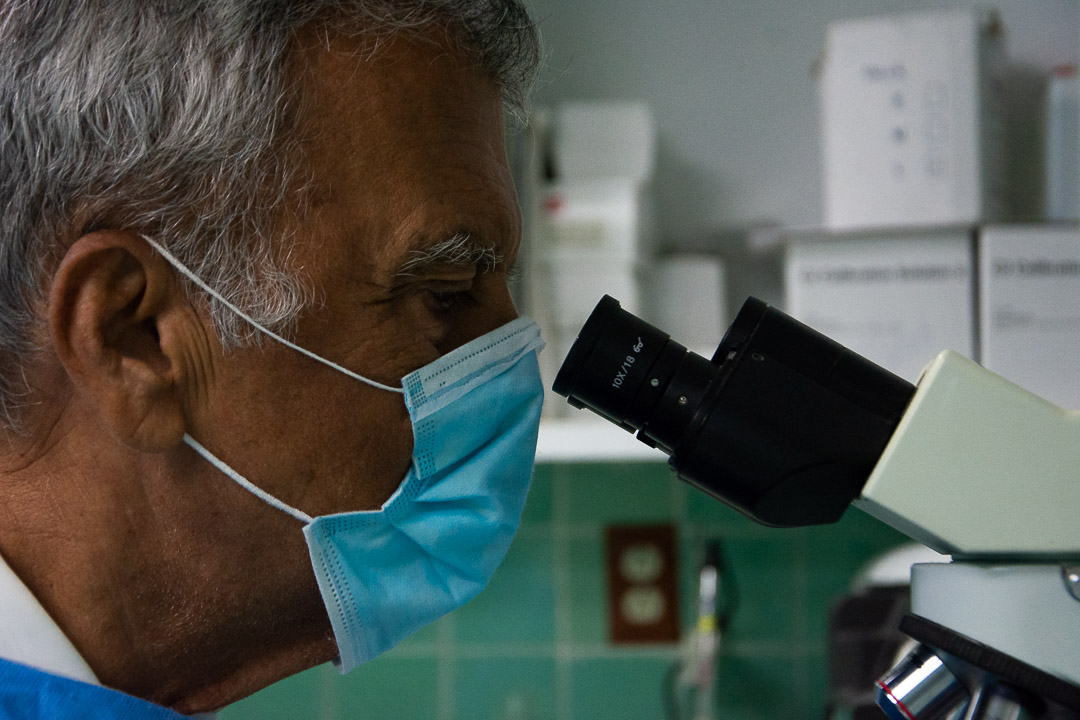
LABORATORY PROOF
Guillermo Rivero arrived in 1982. In this same hospital he fell in love with Dr. Adela Avilés, more than 40 years ago. He served missions in Pakistan, Bolivia and Angola. He traveled to that last country as a teacher. The head of the therapy laboratory, where the most dangerous germs arrive, prefers to talk about the sense of belonging to the institution, the commitment that drives, for example, managing reagents:
“The child in bed 11 has had his problems for a few days, and he has needed albumin dosing many times. We have difficulties with that, but the Manuel Ascunce provincial hospital gave us a bottle. “This is important when monitoring respiratory processes.”
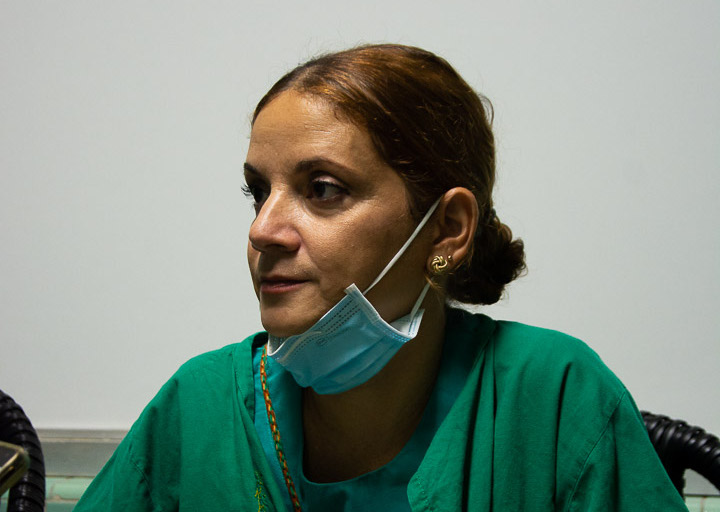
PROFESSOR YANET
Dr. Yanet Loret de Mola Bueno has been a specialist in Intensive and Emergency Medicine since 2004. One of the teachers of the service recognizes the smile of the child saved from a situation as an extreme health situation.
—What human resources do you have?
—The ideal is one doctor per bed. We are eight specialists, but we organize ourselves to guarantee daily visits. Here you work on a Sunday the same as on a Monday.
—Carelessness in the family can trigger a serious state, what do you recommend?
—We are in a bronchiolitis epidemic. It mainly affects children under two years of age; in children under six months it develops more severely. We recommend the use of a face mask, that no patient handles the baby, constant hand washing, proper treatment of food and water; home hygiene, no smoker at home. Exclusive breastfeeding provides antibodies to fight respiratory infections. In addition, the baby should be in his/her home, only going out for medical appointments or essential things like vaccinations.
—Recently, the Cuban artist Michel Mirabal made another donation, which personal help is always useful?
—Expendable resources: infusion sections, three-way valves, endotracheal tubes, devices for catheterization of deep and peripheral vessels to administer the therapy. The ventilated patient has suction tubes. Sometimes we are tight, although this service takes priority.
We have other questions, but now is not the time. Professor Yanet speaks warmly, looks confident. She clearly has a vocation for infinite love. Hopefully that would be enough against the inevitable. There are diseases that do not stop and organisms that do not respond:
“The pain of losing a patient when they do not evolve as you would like, that is permanent, that does not change even over time.”
Translated by Linet Acuña Quilez
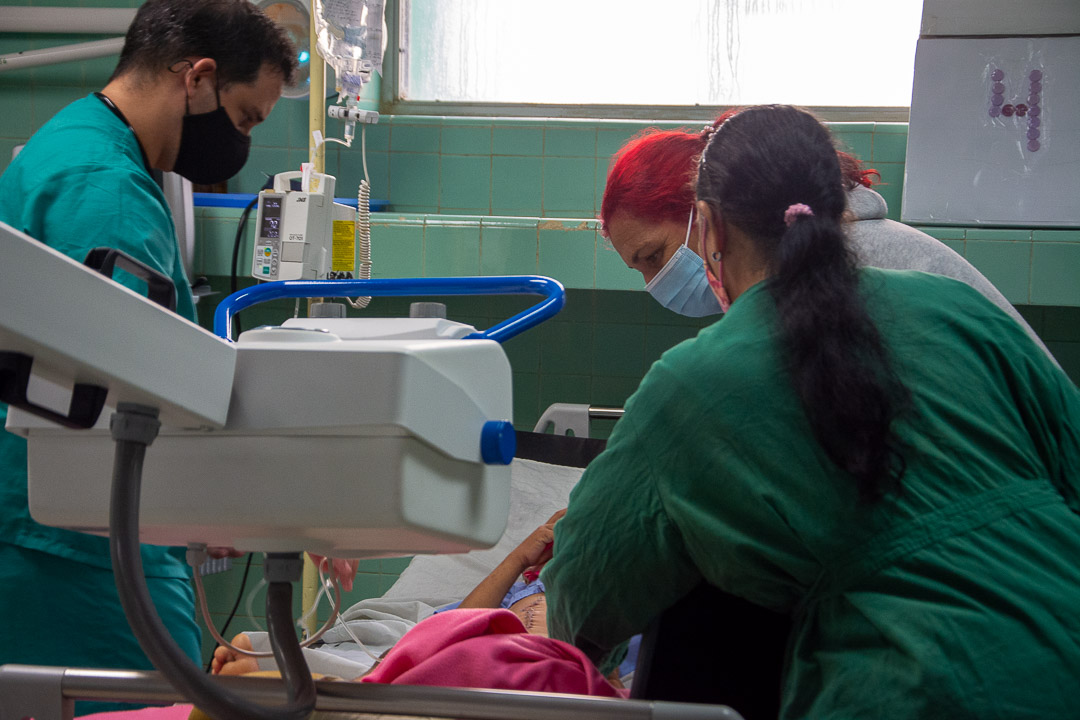 It is a common scene, Yusneidy Gendi confirmed to us. When we spoke, she was already hugging the patient hit by the horse. He had a tearful voice: “My child is alive thanks to the doctors here.”
It is a common scene, Yusneidy Gendi confirmed to us. When we spoke, she was already hugging the patient hit by the horse. He had a tearful voice: “My child is alive thanks to the doctors here.”
